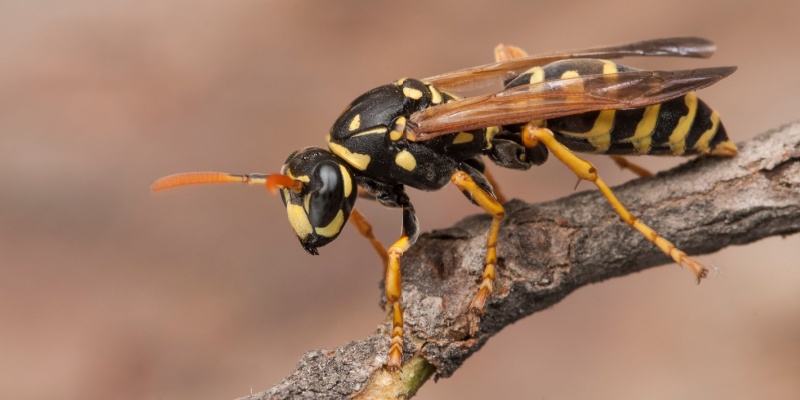As temperatures rise in North Port, Florida, stinging insects become more active and visible around our homes and yards. Understanding which species you’re dealing with and how to prevent them from nesting on your property is essential for keeping your family safe.
Common Stinging Insects in North Port
- Yellow Jackets: These aggressive wasps are easily agitated and can sting repeatedly. They’re often found near trash cans, dumpsters, and soda cans. While they do help by eating insects that can damage landscaping, their defensive nature makes them dangerous to have around your home.
- Paper Wasps: These reddish-brown and black wasps create nests that resemble paper combs. Living in colonies, paper wasps feed on caterpillars, flies, and other insects. Their stings tend to be more severe than those of other species because of the enzymes injected, which can cause serious reactions in allergic individuals.
- Bald-Faced Hornets: Despite their name, these are actually a type of yellowjacket without the yellow. They have a white face and black body, sometimes with white stripes at their hind end. They’re just as likely to attack when someone encroaches on their space and are attracted to sweets.
- Mud Dauber Wasps: These wasps build nests made of mud in sheltered areas such as under eaves or inside attics. They’re typically black with yellow markings on their abdomen and feed primarily on nectar but also prey on other insects.
- Cicada Killer Wasps: Large and black with yellow markings, these wasps make their nests underground and feed primarily on cicadas. They can sting humans when threatened, but are less aggressive than other wasp species.
Keeping Stinging Insects Away From Your North Port Home
- Seal Entry Points: Inspect your home for holes and seal them. Weatherstrip cracks and crevices around windows and doors to prevent insects from entering.
- Reduce Food Sources: Keep outdoor eating areas clean and garbage containers tightly sealed. Rinse recyclables thoroughly and avoid leaving sweet drinks or fruits exposed outdoors.
- Remove Standing Water: Stinging insects are attracted to water sources, so eliminate bird baths, pet water bowls, and other standing water near your home.
- Use Natural Deterrents: Common household items can help deter stinging insects. For example, they dislike the smell of dryer sheets, which you can place around areas where you plan to eat outdoors.
- Regular Inspections: Check your property regularly for signs of nests, especially under eaves, in bushes, trees, and along fence lines. Early detection makes removal safer and easier.
- Professional Help: DIY methods to eliminate stinging insects are not always effective and can be dangerous, especially if someone on your property is allergic to stings. For your safety, professional pest control is recommended.
At F2 Exterminators, we specialize in the safe and effective removal of stinging insect nests in North Port. Our technicians are trained to identify the specific species you’re dealing with and implement the appropriate removal strategy. Don’t risk painful stings or dangerous allergic reactions—contact F2 Exterminators today for a free inspection and reclaim your outdoor spaces from stinging insects.
